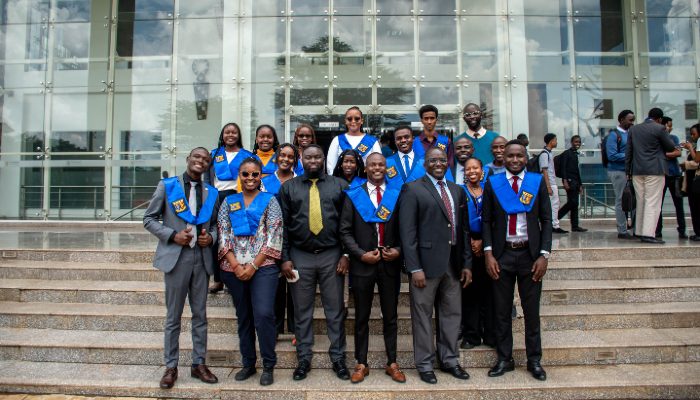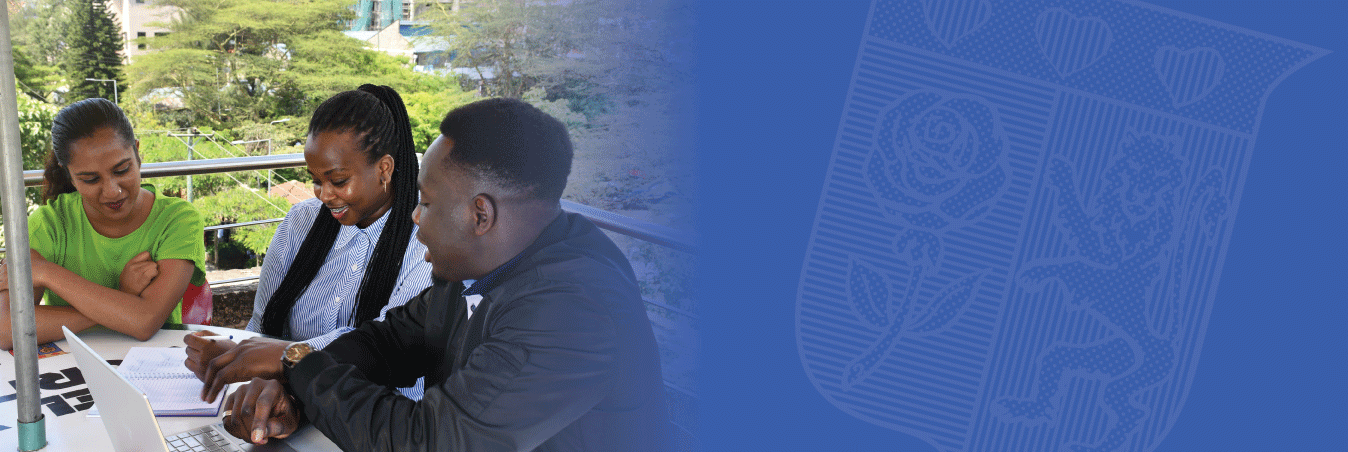Kenya’s education system faces a critical decision point. For far too long, it has emphasized rote memorization, which reminds me of the sleepless nights we spent memorizing the mathematical table and the dread of high-stakes exams all the way from kindergarten to university. Joy often hinges on bringing home a beautiful report card rather than gaining knowledge, leaving graduates unprepared for the realities of today’s job market and society. Despite impressive academic credentials, many Kenyan graduates often find themselves disillusioned after enduring frustrating job searches. A video of a graduate from a local university burning his academic certificates elicited mixed reactions among Kenyans, with reports claiming that the young man was frustrated after failing to secure a job. This harsh reality highlights a fundamental flaw: our education system prioritizes scores over skills, leaving students unable to translate their theoretical knowledge into tangible career success. The overemphasis on academic intelligence comes at the expense of crucial life skills. Many graduates lack essential competencies like critical thinking, problem-solving, adaptability, and teamwork; all vital for navigating the dynamic world we live in. Our schools operate like factories, churning out standardized test scores while neglecting the holistic development of students as individuals. Kenyan media often paints a deceptive picture of success by fixating on schools’ high national exam scores, creating a mirage that overlooks the real challenges students face post-results. The failure to report on students’ ongoing struggles or triumphs perpetuates an incomplete narrative, masking the true dynamics of the education system and individual academic journeys.
This crisis is further compounded by chronic underfunding. Despite UNESCO’s recommendation for countries to allocate at least 4-6% of their GDP to education, Kenya remains on the lower minimum side of the recommendation with FY23/24 4.3% of the GDP allocated to education. Even so, it has become a dirge to hear school management complain about the high costs of operations and failure by the government to remit capitation money in full, and in good time. Both the government and school principals have found it difficult to implement capitation, and parents frequently find themselves in the ensuing limbo, forced to shoulder the weight of a broken system. The Kenya National Union of Teachers (KNUT) has pleaded with the government on multiple occasions to raise capitation from Sh1,420 to Sh4,000 (primary) and Sh22,244 to Sh35,000 (secondary), and to quickly disburse the monies to support the efficient operation of schools. Unfortunately, this request has frequently been overlooked. In 2023, the Kenyan government committed to releasing 50% of the capitation money in the first term, 30% in the second, and 20% in the third term. However, the administration only delivered 25% in Term One, and 20% in mid-June, a picture of an inefficiency.
Whilst the late President Kibaki’s administration made great strides in improving access to education, subsequent administrations have allowed education to become politicized. Campaign promises of educational reform swiftly fade away, replaced by empty rhetoric and political bickering. A glaring example of this disconnect is the failed “tablet for every student” project, which exposed the absurdity of ambitious technological promises without addressing fundamental infrastructure needs. For students in remote areas like Tiaty, was a tablet the greater need than security and better classrooms? How were they supposed to charge their devices? This highlights the gap between grand pronouncements from car rooftops and the realities on the ground. In 2022, parliament was informed that the illiteracy levels in Tiaty, known for banditry attacks and cattle rustling activities, especially in the Silale region, stand at more than 90 percent, a situation members were told was attributed to outdated cultures like female genital mutilation, early marriages and cattle rustling activities. What happened to the slogan; “we are listening to the ground?” Similarly, the current debate around the Competency-Based Curriculum (CBC) often descends into political bonga-point-scoring moments, jeopardizing the education of an entire generation.
In stark contrast, Finland has garnered international acclaim for its exceptional educational outcomes. While a recent program sending Uasin Gishu County students to Finland for higher education opened a can of worms about educational finance embezzlement, the core principles of the Finnish education system offer valuable insights. Finnish schools emphasize equality, equity, and skill acquisition, aiming to foster a love of learning rather than a fear of exams. Students aren’t burdened with excessive memorization but are encouraged to think critically, apply their knowledge creatively, and collaborate with their peers.
The impact of this approach is evident in Finland’s highly trained and motivated teaching force. Teachers enjoy significant autonomy, and they are empowered to adapt the curriculum and utilize diverse teaching methods to cater to their students’ unique needs. Assessments go beyond final results, focusing on continuous improvement and providing valuable feedback for both students and teachers. Furthermore, Finland prioritizes the continuous professional development of its educators. Programs like the Subject Teacher Education Programme (STEP) at the University of Helsinki offer experienced teachers with bachelor’s degrees the opportunity to pursue a master’s degree, honing their pedagogical skills and deepening their subject knowledge. I think there would be a large transformative impact in Kenyan classrooms if passionate, experienced teachers could access similar opportunities! By replicating this model, Kenya could empower its educators to become lifelong learners, equipping them with the tools to inspire and nurture the next generation of innovators and leaders.
While Finland provides a valuable reference point, any reform of Kenya’s education system must be tailored to our unique needs and context. The goal should be to produce learners equipped with foundational knowledge, practical skills, and the adaptability to navigate an uncertain future, and the emotional intelligence to thrive both personally and professionally. This transformation requires bold leadership focused on policy creation and reforms, increased and effective investment in the educational infrastructure, and above all depoliticization of education. Governments and education policymakers must be willing to challenge the status quo and make the tough decisions necessary for a lasting change. While significant challenges exist, the cost of inaction is far greater. Let’s create an education system that not only prepares our students to pass exams but empowers them to shape their futures and contribute meaningfully to our society and the world.
Article written by: Fr. Thomas Otieno (Toti), MSc. in Education Management Student.
What’s your story? We’d like to hear it. Contact us via communications@strathmore.edu
ALSO CHECK OUT
See more news-

Gen Francis Ogolla: How power of humility delivers transformative leadership* 25,Apr,2024
As the country mourns the Chief of Defence Forces of Kenya, General
-

Highlights from the SBS Undergraduate Fourth Years’ Gala Dinner* 25,Apr,2024
Friday, 8th March 2024 was an evening of celebration as students from the
-

Celebrating Humanities and Social Sciences 2024 graduates.* 25,Apr,2024
On Friday evening, April 19th 2024, Strathmore University held a celebratory gala
-

Elevating Tourism & Hospitality Leadership: Transformative trends shaping the future of the industry* 23,Apr,2024
On April 18, 2024, the Strathmore University School of Tourism and Hospitality
-

Towards Climate Resilience: Strathmore University, Imperial College Partnership* 23,Apr,2024
In a bid to foster joint efforts in tackling climate resilience issues,
-

Crossing Continents: Yvette Yego’s Transformative Journey through the Sciences Po Exchange Program* 22,Apr,2024
“I’ve gained extensive knowledge in international studies, interacted with diverse students from
-

Stratizens Explore Malaysian Cinema: Mechamato Screening at Sarit Center* 22,Apr,2024
Imagine being invited by the Malaysian embassy in Kenya to an exclusive
-

Strathmore Hosts the 2nd Mediation Summit on Employment Disputes* 19,Apr,2024
In a world where the dynamics of employment relations shape the very
-

Strathmore Tax Hackathon 2024: Cultivating Innovation in Tax Policy* 19,Apr,2024
In the heart of Nairobi, the prestigious Strathmore Law School hosted the
-

Transforming Mental Health Support for Students at Strathmore* 17,Apr,2024
In Kenya, within the bustling academic environment of universities, there exists a

